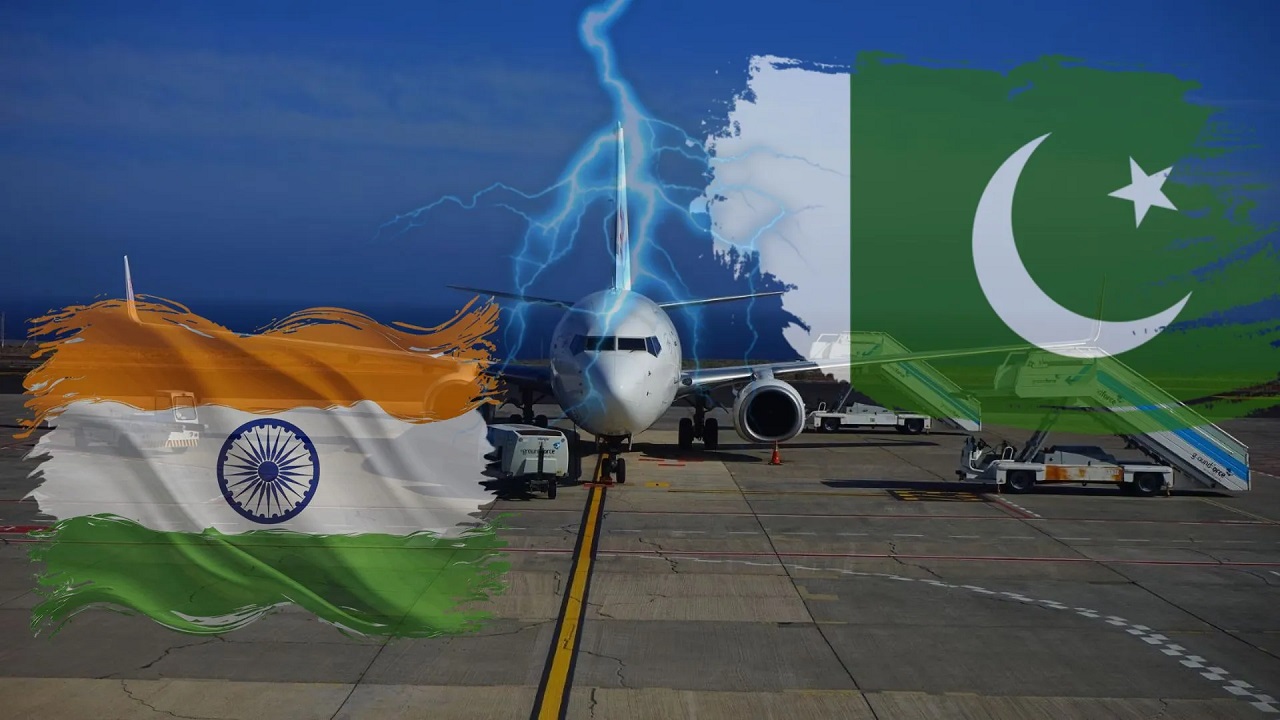Pakistan’s Airspace Closure: Operational and Economic Implications for India
Context
The ongoing tensions between India and Pakistan, exacerbated by the Pahalgam terror attack, have led to significant geopolitical and operational challenges. In response, Pakistan has closed its airspace to Indian airlines, which is affecting air travel, particularly international routes. The closure has resulted in operational disruptions, increased costs, and logistical complications for Indian carriers.
Impact of Pakistan’s Airspace Closure on Indian Airlines
Scope of the Ban:
-
Pakistan has prohibited all aircraft registered in India or operated by Indian carriers from using its airspace.
Affected Routes:
-
The closure primarily affects west-bound flights from northern Indian cities, especially Delhi, to Central Asia, the Caucasus, West Asia, Europe, the UK, and North America.
Flight Rerouting:
-
Flights are now rerouted over the Arabian Sea, which increases flight times and fuel consumption.
Operational Challenges:
-
Airlines must manage fuel and payload adjustments, sometimes reducing passenger capacity or baggage to comply with weight limits.
Increased Costs:
-
Operational costs rise due to longer routes, leading to potential 8–12% increase in airfares on international sectors.
Competitive Disadvantage:
-
Foreign airlines continuing to use Pakistani airspace will have a cost advantage over Indian carriers.
Most Affected Airline:
-
Air India, operating numerous west-bound flights, is likely to be the most impacted.
Uncertainty in Routing:
-
Airlines are still evaluating rerouting options, with final flight plans pending.
Impact on IndiGo
Since 2019, IndiGo has expanded its operations in Central Asia, Turkey, and the Caucasus. The airline, the only Indian carrier in these regions, faces significant disruption due to the closure of Pakistani airspace.
Pakistan’s Previous Airspace Closure (2019)
-
In February 2019, Pakistan closed its airspace following the Balakot airstrikes.
-
The closure lasted for several months, causing significant operational disruptions and increased costs for Indian airlines.
-
Financial Losses:
Indian airlines incurred losses amounting to ₹700 crore, mainly due to longer flight paths and increased fuel consumption.
Measures After Pahalgam Attack
India’s Measures:
-
Suspension of the Indus Waters Treaty.
-
Closure of the Attari-Wagah Border.
-
Cancellation of the SAARC Visa Exemption Scheme.
-
Expulsion of Pakistani military advisors.
-
Reduction in diplomatic staff at India’s High Commission.
Pakistan’s Retaliatory Measures:
-
Closure of airspace to Indian carriers.
-
Suspension of trade relations.
-
Suspension of the Simla Agreement and all bilateral agreements with India.
-
Visa restrictions on Indian nationals, except for Sikh pilgrims visiting the Kartarpur Corridor.
-
Pakistan described the suspension of the Indus Waters Treaty as an ‘act of war’.
Legal Framework of Airspace Closure
Domestic Regulations:
-
Each country has exclusive control over its airspace, regulated by its civil aviation authority. In India, the Directorate General of Civil Aviation (DGCA) issues NOTAMs for airspace restrictions.
International Regulations:
-
Under the Chicago Convention (1944), Article 1 affirms the sovereignty of countries over their airspace.
-
The International Civil Aviation Organization (ICAO) oversees international aviation regulations.
The Simla Agreement (1972)
The Simla Agreement, signed on July 2, 1972, aimed to resolve post-war disputes between India and Pakistan, particularly over Kashmir.
Key Provisions:
-
Disputes, including Kashmir, to be resolved bilaterally, without third-party involvement.
-
Both countries pledged to respect each other’s territorial integrity and political independence.
-
The Line of Control (LoC) was established, replacing the ceasefire line in Jammu and Kashmir.
-
Diplomatic, economic, and cultural relations were restored.
-
India released over 93,000 Pakistani prisoners of war, and returned 13,000 km² of territory, excluding strategic areas like the Chorbat Valley.
Conclusion
The closure of Pakistan’s airspace poses significant challenges for Indian airlines, impacting operations, increasing costs, and heightening diplomatic tensions. This development is a critical issue that underscores the fragile state of India-Pakistan relations.




Comments (0)